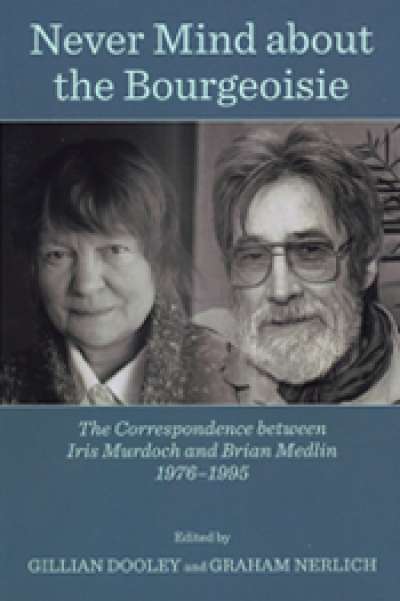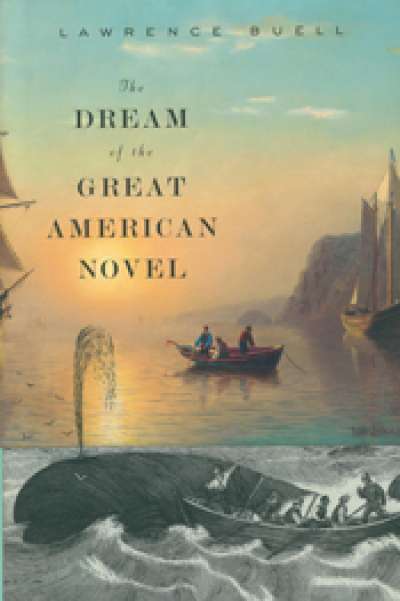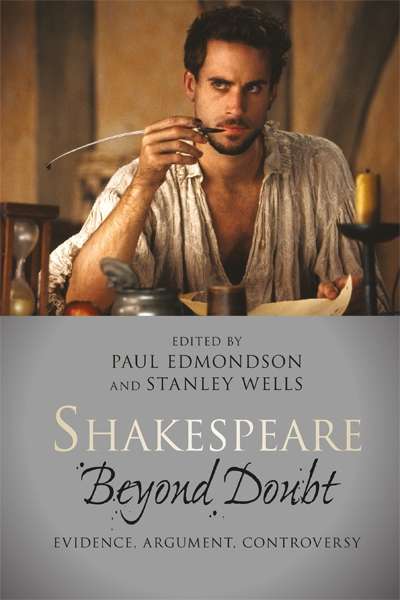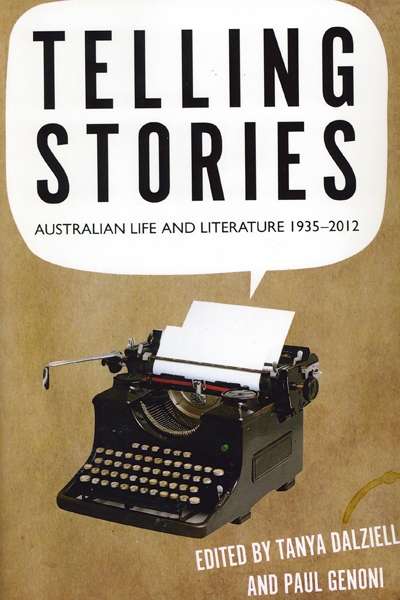Literary Studies
Never Mind about the Bourgeoisie: The correspondence between Iris Murdoch and Brian Medlin 1976–1995 edited by Gillian Dooley and Graham Nerlich
If you’re a bookish type of a certain age, chances are you went through your Iris Murdoch period. You binged on novels such as The Black Prince (1973) and The Sea, The Sea (1978); you immersed yourself in her world of perplexed, agonised souls searching for meaning, falling disastrously in love with absurdly wrong people, consoling themselves with a swim or a madrigal singalong. It’s less likely that you will have read any of her philosophical writings, but you were in awe of her mind, and her eventual eclipse by Alzheimer’s seemed like a particularly cruel blow. Your impression of her is probably of a brilliant, absent-minded professor who looked like Judi Dench.
... (read more)Well, it’s Moby-Dick, obviously. Except when it’s Huckleberry Finn or Absalom, Absalom! or Invisible Man or Gravity’s Rainbow. The Great Gatsby will often do, if one is pressed for time.
There is something a bit ridiculous about the idea that a single book could become the definitive expression of an entire nation. This is perhaps especially true in the case of the United States, a country so vast, diverse, and contradictory that any attempt at a grand summation would appear doomed to fail. Nevertheless, as Lawrence Buell argues in The Dream of the Great American Novel, the concept of the ‘GAN’ (the nickname bestowed by no less an eminence than Henry James) has proved remarkably resilient. As Buell notes in his introduction, the idea tends not to be taken all that seriously these days: no novelist would admit to trying to write such a thing, except perhaps in jest, and no serious critic would be reckless enough to bestow such a title. And yet, he observes, paraphrasing an unnamed ‘distinguished reviewer’, it is ‘hard to think of a major American novelist who hasn’t given it a shot’.
... (read more)On an early spring evening in 1919, in a nearly empty cinema in the English seaside town of Lyme Regis, a slight, dark-haired figure slipped into a seat at the farthest edge of a row. From here, she would have a clear view of the profile of the youthful pianist who, sheltered behind a screen, accompanied the silent film. In white tie and tails, with her fair hair slicked down, the young musician could easily have passed for a boy. But Henry knew better. She had already extracted from the cinema’s owner the useful information that the pianist who gave such superlative performances night after night in the dark, sparsely filled hall was his daughter, Olga. The delicious ambiguity of the young woman’s appearance only added to the pleasure of her effortless improvisations. The soft, feminine form in its stiff, masculine garb was as enticing as the verve and finesse of the music itself.
... (read more)The Road to Middlemarch: My life with George Eliot by Rebecca Mead
In chapter fifteen of Middlemarch (1871–72), George Eliot writes about the germination of literary passion: ‘Most of us who turn to any subject we love remember some morning or evening hour when we got on a high stool to reach down an untried volume … as the first traceable beginning of our love.’ Rebecca Mead’s book on her own engagement with Middlemarch captures this experience of burgeoning intellectual desire: the rush of recognition a reader can feel upon first encountering a novel, and the enduring relevance a beloved book might offer as its contents transform through frequent readings.
... (read more)Great publishers seem to be scarcer than great writers, possibly because people grow up dreaming of being the next Hunter S. Thompson or Simone de Beauvoir rather than Sonny Mehta or Beatriz de Moura. Writers probably need publishers, but publishers definitely need writers. Such a fact has never seemed more tangible to me than as I read The Garden of Eros, John Calder’s account of the major literary events of his lifetime, which focuses on Maurice Girodias of Olympia Press, Barney Rosset of Grove Press, and Calder’s own Calder Publications. Between them they published dozens of the most important writers of the twentieth century: Marguerite Duras, Samuel Beckett, Vladimir Nabokov, Eugène Ionesco, Alexander Trocchi, William S. Burroughs, Claude Simon, Henry Miller … the list goes on. Calder himself published eighteen Nobel Prize winners.
... (read more)Unsuitable for Publication: Editing Queen Victoria by Yvonne M. Ward
When Queen Victoria died she had ruled the British Empire for sixty-three years. In the same year as her ascent to the throne, the capital of the colony of Victoria was christened Melbourne, after her first prime minister. She died in 1901, soon after Federation. After her death, her real character remained largely unknown for decades (Lytton Strachey’s seminal biography was still twenty years hence). The public regarded Victoria as dour and was oblivious to her remarkable qualities. Any concern for her reputation was then lost beneath the carnage of two world wars and multiple mass conflicts. How this happened is the subject of Unsuitable for Publication.
... (read more)In So Many Words: Interviews with Writers, Scholars and Intellectuals by Cassandra Atherton
I have often thought that a large part of achievement is just fronting up; having an idea and acting on it, however unlikely success might seem. What you need is a resolution (or the disposition) not to be discouraged by failure and to be pleasantly surprised by success. If it doesn’t work, you try something else. You make the most of any opportunity. You should also jettison a conventional sense of the social niceties. You’re going to Boston for your honeymoon. Hey, why not ask Noam Chomsky for an interview?
... (read more)English as a Vocation: The Scrutiny movement by Christopher Hilliard
Christopher Hilliard’s meticulously researched and richly detailed English as a Vocation: The Scrutiny Movement opens with a historical anecdote regarding an after-hours, postwar negotiation ‘between literary analysis and popular culture’ undertaken in that most evocative of English holiday destinations: Scarborough. In these opening lines, Hilliard describes how the founder and director of Birmingham University’s renowned Centre of Cultural Studies, Richard Hoggart, working in an earlier capacity as an adult education tutor in North Yorkshire, spent his evenings in the late 1940s combining classes on Shakespeare with sessions scrutinising advertising rhetoric and the language of newspaper articles.
... (read more)Shakespeare Beyond Doubt: Evidence, argument, controversy edited by Paul Edmondson and Stanley Wells
It was not until the middle years of the nineteenth century, so far as we can tell, that anyone seriously doubted that the man from Stratford-upon-Avon called William Shakespeare had written the plays that for the past two and a half centuries had passed without question under his name. In the early 1850s, however, a private scholar from Connecticut named Delia Bacon began to develop an alternative view. She believed that the plays had been composed not by Shakespeare but by a syndicate of writers headed probably by Francis Bacon, whom she later came to think of as her distant ancestor.
... (read more)Telling Stories: Australian Life and Literature 1935–2012 edited by Tanya Dalziell and Paul Genoni
Telling Stories is a great brick of a book full of diverting bits and pieces about Australian culture over the past seventy-seven years. It is hugely entertaining – a sort of QIin book form, with seventy-nine authors offering their brief observations on aspects of Australian cultural life. No one will read it cover to cover: it’s the sort of book you can leave about the house for anyone to pick up and amuse herself with for fifteen minutes or so. They can jump from titbits about rock music, or children’s novels, films or poetry, or serious pieces on the slow movement towards understanding Australia’s Aboriginal heritage. The editors suggest it is ‘a twenty-first century cabinet of curiosities’. By and large, it creates an optimistic, even celebratory, account of the experience of Australian life in the twentieth century.
... (read more)









